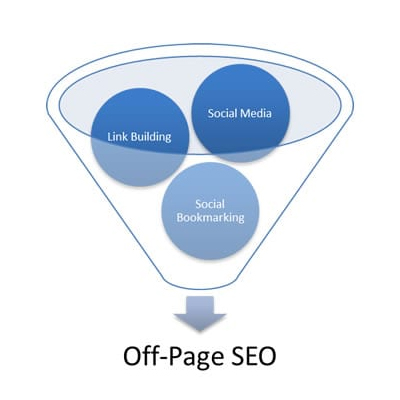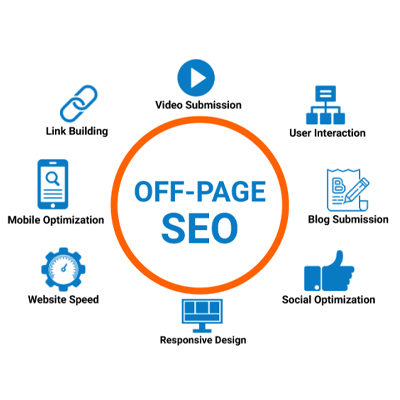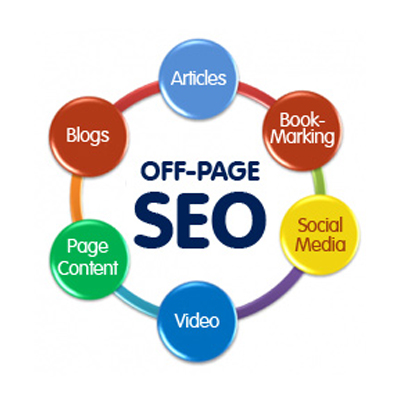The Ultimate Guide to Off-Page SEO

We are going to cover the offpage optimization in below points in this guide:
- What is the off-page SEO?
- Why is Off-Page SEO Important?
- Off-page SEO Benefits
- Off-Page SEO Techniques
What is the Off-Page SEO?
“Off-page SEO” or “off-site SEO” generally refers to actions taken outside of your website to impact the organic rankings within search engine results pages (SERPs).
Off-page SEO actions include building high-quality backlinks, encouraging branded searches, and increasing engagement and shares on social media channels.
Off-Page optimization is about various promotion methods – besides important website content –to rank a website higher in the search results.
Why is Off-Page SEO Important?

Since decades, Search engines have been trying to avail users with best results on their searches. To achieve the same, they take into consideration many on-page SEO factors, some other quality factors, and off-page SEO factors.
Despite all these, Backlinks and other off-site signals still form the foundation of Google’s algorithm.
A website built with high quality and useful content is more likely to have backlinks from other websites. It will also receive more brand mentions on social media like Facebook likes, Twitter tweets, Pinterest Pins, etc. and it will surely be more bookmarked and shared among communities of relevant users.
Certain studies have found a clear correlation between total backlinks and Google rankings.
Off-Page SEO Benefits
Having a successful off-page SEO strategy will avail the following benefits to website owners:
Increase in SEO rankings – When opting for an off-page Search Engine Optimization the website will rank higher in the SERPs and also generate more traffic.
Increase in DA – Domain Authority is an important SEO factor, as one views the pages first which are visible first while searching. Domain Authority is a number between 0 and 100 which has several websites on it on different web pages, indicating the importance of a website in the eyes of Google. DA is one of the important SEO ranking factors that Google is using to rank websites.
Greater exposure – When one gets Higher rankings means one also gets greater exposure because when a website ranks in the leading positions: it receives more links, more visits, and more social media mentions. It’s like a series of interdependent events where one thing leads to another.
Establish Trustworthiness – Google has introduced the concept of Expertise, Authority, and Trustworthiness (E-A-T). This is an important factor in rankings and is directly connected to off-page SEO.
Google aims to rank websites that offer expertise and authority on a subject, and one of the ways to check that the websites selected by the Google algorithms can be trusted is through the number and type of incoming links.
Off-Page SEO Techniques

Link Building
One of the most popular and effective off-Page optimization technique is Link building. By building links to your website, one can accumulate as many ‘votes’ as possible, so that one can bypass his competitors and rank higher.
While assigning the ranks during the ranking process, search engines take into account which pages to show on top of the results for the term ‘Off-Page SEO’.
Since some years, webmasters have been trying to build links to their websites to achieve higher rankings and they have found several ways to increase the link count.
Because of which search engines were forced to add more rules to their algorithms and initiate differentiating between good links and bad links.
Some useful link building techniques are:
Publishing link-worthy content – This is quite an important technique even though it may not look so. Firstly, publishing great content will get avail you with organic links if you promote your page correctly to the right audience. Secondly, even if you don’t have good content, but you somehow manage to secure links, your page won’t rank. Having content that satisfies the user intent is a more important link factor. In absence of (good content and links), you won’t be able to rank on leading positions in Search Engines.
Guest posting on other websites – This is a popular method to get quality links to your website. All you need to do is -Find websites that accept posts from guest authors. Pitch them with your ideas and get the posts published with a link redirecting to your website.
This seems easy but one of the problems is that this method has been over abused by webmasters over the years and Google has added rules to its algorithms to detect and de-value guest posting links. For example, If a website is only publishing posts from guest authors, it might be possible that the link will not have any value or a great impact on your rankings. But a link from a website having good rankings and unique content generated from their authors and guest contributions can positively impact your website rankings.
Asking for links –This is not so popular but the concept is simple, you find related websites, email them, and ask to link to your content. The probability of getting positive replies are less and you’ll be required to send a lot of emails.
Linking to other websites from your content –Opposite of the above method is to link to other websites from your content and email them mentioning about it.
Publishing link-worthy visuals – This method includes publishing appealing visuals on your website like infographics, statistics, graphs, illustrations, charts that users might find valuable to add to their content with a link to its source.
Social Media Marketing
Social media marketing is part of ‘off-site SEO’ and also a form of link building. Google has officially stated that social signals like likes, comments, shares do not necessarily impact website rankings. Reason being, they can easily be manipulated or get paid for. If a post gets organic attention on social media or goes viral, this will have an indirect impact on your rankings. Popular posts are seen by thousands of people and it is more likely for webmasters to link to your post from their blogs.
To reach a larger audience you can promote each of your posts on social media which will get more people to read it and some people may link to it.
You can even optimize your social media campaigns to a set of particularly targeted audiences that are more likely to link to your post, rather than publishing & promoting your posts to a general audience.
Thus, if used correctly & efficiently, social media can indirectly help off-page SEO
Brand Mentions
As known Brands are reliable and more likely to be trusted by users, Google prefers to rank branded websites on top of the results. The answer lies in the E-A-T: Expertise, Authority, and Trustworthiness.
Brand mentions do not necessarily have a link redirecting to your website like in link building or using social media marketing strategies. Here, it can be mentions of your brand in forums, posts, articles, reviews, or social media networks.
Customer Reviews
Tried & tested by many, Reviews are the most effective off-page SEO technique for local online marketing. Customer reviews are it for your business, website, services, or product reviews, always play an important role in your website SEO rankings. Google trusts these reviews and uses them as an SEO ranking signal.
If you are into selling products or services you can claim your business profile on all major review websites and ask your customers to publish their reviews.
Adding reviews in your off-page SEO strategy will help you gain more exposure on search engines and build trust with your users as this is the most authentic way without any sorts of filtering and can help attract the desired audience.
FAQsFrequently Asked Questions and Answers on Off-Page SEO
What is Off-Page SEO?
“Off-page SEO” or “off-site SEO” generally refers to actions taken outside of your website to impact the organic rankings within search engine results pages (SERPs).
What is On-Page vs Off-Page SEO?
While on-page SEO refers to those SEO activities which can be performed on the website, off-page SEO refers to those SEO activities which performed off the website. Both types of activities boost the organic ranking and traffic of the website.
Why does Off-Page SEO matter?
Off Page SEO help in improving website rank in the search engines. Backlinks and other off-site signals are play an important role in Google’s algorithm. A website built with high quality and useful content is more likely to have backlinks from other websites. It will surely be more bookmarked and shared among communities of relevant users and on social media which builds brand-name awareness.
What is the Off-Page SEO techniques?
Below mentioned off-page SEO techniques are the most used nowadays:
- Influencer Outreach
- Contribute as Guest Author
- Social Bookmarking
- Directory Submission
- Classifieds
- Document Submission
- Social Networking
- Brand Mentions
- Commenting
- Broken Link Building
- Forums Submission
- Article Posting
What is the most Important Off-Page SEO activity?
Building backlinks are the most important off-page SEO activity.
Will Off-Page SEO Improve my Domain Authority?
Yes, it will. You just need to build backlinks from high DA websites and top profile websites. Just make sure your website has sufficient amount of high quality content.
Interested in Search Engine Optimization? You might be interested in below SEO related post:
On-Page SEO – The Ultimate Guide to On-Page SEO
White Hat SEO – Introduction, Important White Hat SEO Techniques, Pros of White Hat SEO
Black Hat SEO – Introduction, Common Black Hat SEO Techniques, Cons of Black Hat SEO
Grey Hat SEO – Introduction, Popular Grey Hat SEO Techniques, Pros and Cons
White Hat SEO vs Black Hat SEO vs Grey Hat SEO – Difference between White Hat SEO, Black Hat SEO and Grey Hat SEO
Local SEO – A Simple and Complete Guide for Beginners
Ecommerce SEO – Popular eCommerce Platform for SEO, Ecommerce SEO Strategy
SEO Issues – Most Common Problems affecting a Website’s Search Engine Performance
Google Manual Penalty – 16 Big Brands Penalized by Google
